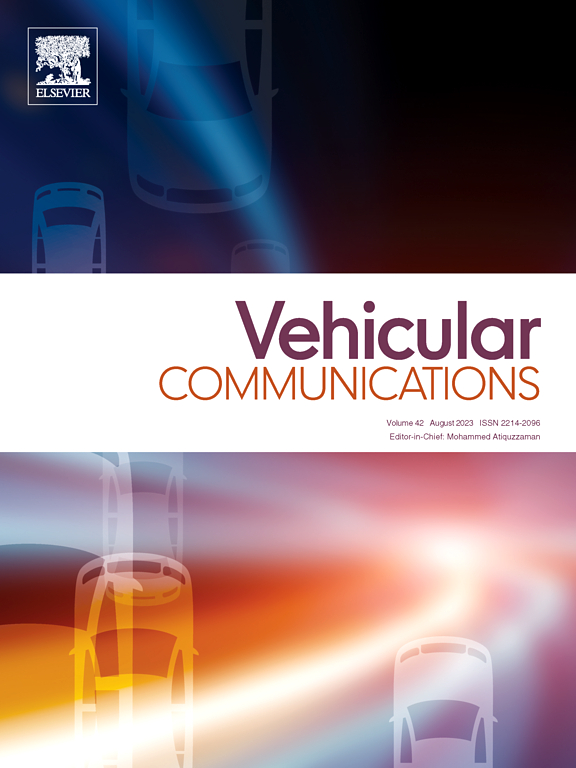A security-enhanced certificateless aggregate signcryption scheme for vehicular ad hoc networks
IF 6.5
2区 计算机科学
Q1 TELECOMMUNICATIONS
引用次数: 0
Abstract
Vehicular Ad Hoc Networks (VANETs) are high-speed mobile wireless communication networks that play a pivotal role in shaping the future of intelligent transportation systems. In many fields, certificateless aggregate signcryption (CLASC) serves as a reliable method that reduces computational and communication overheads while enhancing security. Due to these advantages, in recent years, an increasing number of signcryption schemes have been presented in VANETs. In this paper, a security analysis of Dai et al.'s pairing-free CLASC scheme for vehicular sensor networks is conducted. The analysis results reveal its vulnerability to public key replacement attacks. To address this security flaw, a security-enhanced certificateless aggregate signcryption scheme is proposed and demonstrated its confidentiality and unforgeability against adaptive chosen ciphertext/message attack in the random oracle model. Additionally, the proposed scheme is demonstrated to satisfy the security attributes in VANETs. Eventually, the performance analysis reveal that the proposed CLASC scheme demonstrates superior computational and communication efficiency compared to the related schemes.
一种针对车载自组织网络的安全增强的无证书聚合签名加密方案
车辆自组织网络(VANETs)是高速移动无线通信网络,在塑造未来的智能交通系统中发挥着关键作用。在许多领域,无证书聚合签名加密(class)作为一种可靠的方法,在提高安全性的同时减少了计算和通信开销。由于这些优点,近年来在vanet中出现了越来越多的签名加密方案。本文对Dai等人提出的车辆传感器网络的无配对class方案进行了安全性分析。分析结果表明,该算法容易受到公钥替换攻击。为了解决这一安全漏洞,提出了一种安全增强的无证书聚合签名加密方案,并在随机oracle模型中证明了该方案具有抗自适应选择密文/消息攻击的保密性和不可伪造性。此外,该方案能够满足VANETs的安全属性要求。最后,性能分析表明,与相关方案相比,所提出的CLASC方案具有更高的计算效率和通信效率。
本文章由计算机程序翻译,如有差异,请以英文原文为准。
求助全文
约1分钟内获得全文
求助全文
来源期刊

Vehicular Communications
Engineering-Electrical and Electronic Engineering
CiteScore
12.70
自引率
10.40%
发文量
88
审稿时长
62 days
期刊介绍:
Vehicular communications is a growing area of communications between vehicles and including roadside communication infrastructure. Advances in wireless communications are making possible sharing of information through real time communications between vehicles and infrastructure. This has led to applications to increase safety of vehicles and communication between passengers and the Internet. Standardization efforts on vehicular communication are also underway to make vehicular transportation safer, greener and easier.
The aim of the journal is to publish high quality peer–reviewed papers in the area of vehicular communications. The scope encompasses all types of communications involving vehicles, including vehicle–to–vehicle and vehicle–to–infrastructure. The scope includes (but not limited to) the following topics related to vehicular communications:
Vehicle to vehicle and vehicle to infrastructure communications
Channel modelling, modulating and coding
Congestion Control and scalability issues
Protocol design, testing and verification
Routing in vehicular networks
Security issues and countermeasures
Deployment and field testing
Reducing energy consumption and enhancing safety of vehicles
Wireless in–car networks
Data collection and dissemination methods
Mobility and handover issues
Safety and driver assistance applications
UAV
Underwater communications
Autonomous cooperative driving
Social networks
Internet of vehicles
Standardization of protocols.
 求助内容:
求助内容: 应助结果提醒方式:
应助结果提醒方式:


